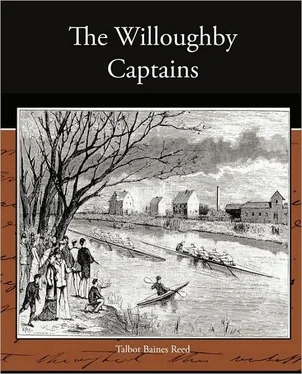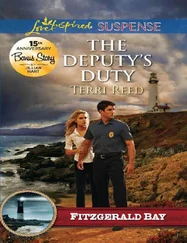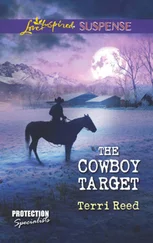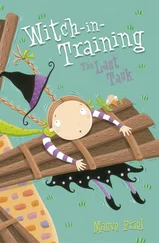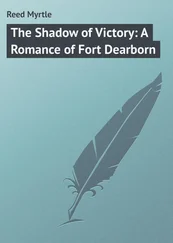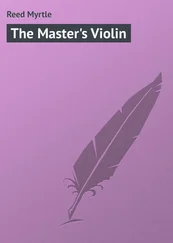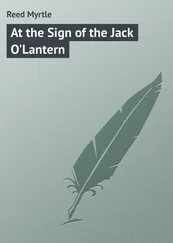“And do you think we funk you? A pack of — I mean,” added Parson, pulling up in time, “do you think we funk you?”
“Why don’t you row us again, then?”
“Because there’s no honour in the thing while your fellows go in for beastly low dodges like that,” replied Parson.
“I tell you,” said Telson, finding it very difficult to keep in with his friend, “we did not do it. I say we didn’t do it; there!”
“What’s the use of your saying that when you know no one but a schoolhouse fellow could have done it?” demanded his friend.
“I tell you we didn’t do it,” repeated Telson, “and you’ve got to prove we did before you say we did,” added he, with triumphant emphasis.
“You’ve got to prove you didn’t,” replied Parson, not to be beaten in this line of argument.
“How can I prove we didn’t when — when we didn’t do it?” cried Telson, making up in noise for what he lacked in logic.
“I knew you couldn’t prove it!” said Parson, triumphant in his turn. “I knew it was one of your blackguard—”
“All right, old man, I shall fight you,” said Telson.
“I didn’t mean, old man, really,” said Parson. “What I mean to say is—”
“I don’t care what you say,” said Telson. “What I say is, we did not do it!”
“All very well,” replied Parson, “but I’m certain you did.”
“How are you certain, I’d like to know?”
“Because, I tell you,” said Parson, slowly and incisively, “it couldn’t have been done by any one else.”
“How do you know it couldn’t?” asked Telson warmly.
“There you are! If you didn’t do it you’d be able to prove it, but you can’t, you see.”
And so this edifying argument went on, or rather round, very much after the style of a dog trying to catch his tail, and at its close Parson and Telson stood as far from solving the mystery as ever.
This slight difference of opinion, however, could hardly fail to result in a little mutual irritation, and for the first time in their friendship the two boys felt as if they did not love one another exactly like brethren. It was therefore no small relief when further argument was abruptly cut short by the entrance of King, looking particularly cheerful and important.
“Hullo, you two!” exclaimed he. “Guessed I’d find you here. Such a lark!”
“What is it?” asked the two friends, delighted with any diversion.
“Why,” exclaimed the delighted King, “you know Bosher?”
“What about him? What’s he done?”
“Guess.”
“It’s not he that cut the rudder-line, is it?” asked Telson.
“No, of course not. But, just fancy, he keeps a diary!”
“What!” exclaimed the other two, laughing, “old Bosher keep a diary! How do you know that?”
King looked very mysterious, and then said, laughing, “I say, what would you give for a squint at it?”
“Have you got it, then?”
“Rather,” said King, producing a small notebook from his pocket. “I found it in the Big just now.”
The notion of Bosher keeping a diary had been amusing enough, but the chance of looking at such a production was irresistible.
The boys did make one languid protest, more, however, to relieve their consciences than to dissuade one another from the meanness of looking into another boy’s diary.
“Rather low, perhaps,” said Telson, “to look at a fellow’s notes.”
“I don’t know,” said King. “If a fellow keeps a diary he must expect it to be looked at if he leaves it about. I know I should.”
“Well, yes, so should I too,” said Parson. “Besides, you know, of course we wouldn’t tell any one else.”
“Rather not,” said Telson. “But you know, Parson,” he added, seriously, “it’s just possible he might have something about the rudder-line in it, and it would be a great thing to clear that up, wouldn’t it?”
“So it would,” said Parson, seating himself at the table.
Telson and King did the same, and Bosher’s diary was forthwith opened.
To all appearance Bosher was the most unlikely boy in all Willoughby to keep a diary. He was not usually credited with overmuch intelligence, and certainly not with much sentiment, and the few remarks he did occasionally offer on things in general were never very weighty. He was a good-tempered, noisy, able-bodied fag, who was at any one’s service, and who in all his exploits did about as much work for as little glory as any boy in the school.
The present discovery certainly revealed him in a new and startling light, and it was with a feeling somewhat akin to awe that the three boys who called themselves his friends set themselves to the task of inspecting his private — his very private diary.
The small volume dated from the beginning of the term, and the first entry the trio examined may be taken as a fair specimen of its general contents.
“‘May 20. The twentieth of May. I awake at 5:37, and got up at 5:43. My motive is to see the boats. It was a beautiful and fine morning. The early birds were singing gladly wore my flannels for running along with the boat.’”
Bosher was a little shaky occasionally in his punctuation, which will explain any apparent incoherence in the above and following sentences.
“‘I sang as I dressed except while washing The Minstrel Boy. Started out at 6:2—met Parson in the Big. Parson thinks too much of himself.’”
“Sharp chap, Bosher,” said King.
“I’ll pull his nose when I see him,” said Parson, who, however, did not appear very deeply affronted so far.
The reading continued.
“‘Parson ran on and left me alone. Now that I am alone let me muse on my past life and hope it will be better only the schoolhouse boat was out. I think they or our boat will win. Nice seeing them row Gilks catches a crab’” (this was previous to Gilks’s ejection from the boat). “‘Entered chapel at 1 to 8. King was there eating toffee.’”
“Hullo, King, you’re all right. When this diary’s published some day, you’ll figure all serene,” said Telson, laughing.
“Wait a bit,” said King, “your turn’s coming.”
“‘At breakfast sit opposite Telson. He eats vulgar. Thou shouldest not talk with thy mouth full, Telson, I prithee.’”
The readers fairly broke down at this point. Telson had to admit that his turn had come, and relieved himself by announcing that he would prithee his candid chronicler some day in a way which would astonish him.
“‘Meditations at breakfast,’ continued the diary. ‘The world is very big. I am small in the world. I will ambition twenty lines for gross conduct with Harrison — throwing bread I repent entirely. Parson wanted me to do his “Caesar” for him.’”
“Oh, what a whacker!” exclaimed Parson.
“‘I declined, owing to not knowing—’”
“I can believe that!” added Parson.
“‘Both detained for gross conduct not knowing verbs my home is far away. Let out at 12:28.’”
“What rot it is!” exclaimed Parson, looking up. “What a howling young ass he must be to put it all down!”
“I guess he didn’t expect we’d see it,” said Telson. “But, I say, we can’t read it all. Let’s see what he says about the boat-race.”
This was agreed to, and the eventful day was turned to.
“‘Rose at 7:3,’” began Telson, reading—“oh, we don’t want that. Let’s see, ‘Attended chapel at half a minute to eight. Half a minute more I had been too late. That had been bad alas had I been bad it had been bad for me next to Wyndham in chapel. Wyndham hath lost his knife he requested me had I seen it. I answered nay I had not. He said—’ Oh, what frightful bosh it is, I say!”
Читать дальше
